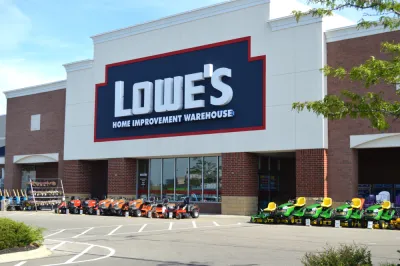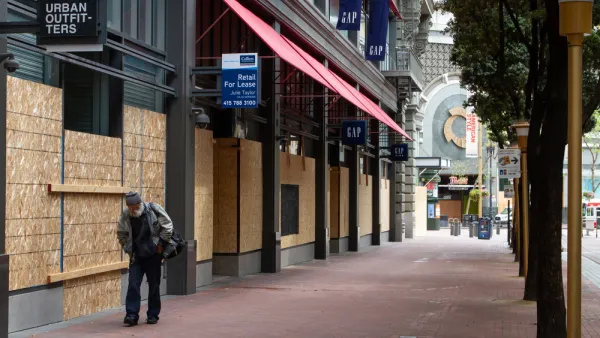The New York Times takes a deep dive into the "dark store theory" costing local municipalities millions, and potentially more, in property tax revenues all over the country.

Patricia Cohen reports for The New York Times:
With astonishing range and rapidity, big-box retailers and corporate giants are using an aggressive legal tactic to shrink their property tax bills, a strategy that is costing local governments and school districts around the country hundreds of millions of dollars in lost revenue.
According to Cohen, the stores appraise their properties based on "sale prices on the open market of vacant or formerly vacant shells in other places."
Retail stores make the case that these tax arrangements are necessary to make ends meet in a changing market. Municipalities say corporations aren't paying their fair share. "Either way, homeowners and small businesses will have to pay more or live with smaller budgets for police, schools, garbage pickup and road repair," writes Cohen.
This is the dark store theory first detailed in urbanism media by Laura Bliss in November 2018 and reported locally in March 2017 by Glenn Hegar for the Austin Statesman.
Evidence of dark store theory's domino effect on local municipalities is piling up. According to an October 2018 report by the Michigan Association of Counties, dark store theory reduced local revenues in the state by $100 million between 2013 and 2017. "In Texas, the comptroller said such appeals could end up costing local governments $2.6 billion a year," according to Cohen.
The article also includes specific examples, like the case of a Lowe's in Wauwatosa, Wisconsin, where "the company spent more than $16 million to buy the land and construct its 140,000-square-foot building less than a dozen years ago," according to Cohen. "The city assessed the spot in a bustling retail hub right off Highway 41 at $13.6 million. The company’s appraisal was $7.1 million, based on sales of empty and once empty buildings in other neighborhoods."
According to Cohen, legislation to curb the practice has been considered in Alabama, Texas, and Indiana.
For more coverage on dark store theory, see an article by Joyce Jauer, Olga Garza and Bruce Wright for the Texas Comptroller in February 2017, Abby Jackson for Business Insider in August 2017, Sehvilla Mann for NPR in November 2017, and Rebecca Badgett for the University of North Carolina School of Government in March 2018. An opinion piece from August 2017 by Judy S. Engel and Lynn S. Linné argues in favor of the practice.
FULL STORY: As Big Retailers Seek to Cut Their Tax Bills, Towns Bear the Brunt

Analysis: Cybertruck Fatality Rate Far Exceeds That of Ford Pinto
The Tesla Cybertruck was recalled seven times last year.

National Parks Layoffs Will Cause Communities to Lose Billions
Thousands of essential park workers were laid off this week, just before the busy spring break season.

Retro-silient?: America’s First “Eco-burb,” The Woodlands Turns 50
A master-planned community north of Houston offers lessons on green infrastructure and resilient design, but falls short of its founder’s lofty affordability and walkability goals.

Test News Post 1
This is a summary

Analysis: Cybertruck Fatality Rate Far Exceeds That of Ford Pinto
The Tesla Cybertruck was recalled seven times last year.

Test News Headline 46
Test for the image on the front page.
Urban Design for Planners 1: Software Tools
This six-course series explores essential urban design concepts using open source software and equips planners with the tools they need to participate fully in the urban design process.
Planning for Universal Design
Learn the tools for implementing Universal Design in planning regulations.
EMC Planning Group, Inc.
Planetizen
Planetizen
Mpact (formerly Rail~Volution)
Great Falls Development Authority, Inc.
HUDs Office of Policy Development and Research
NYU Wagner Graduate School of Public Service




























